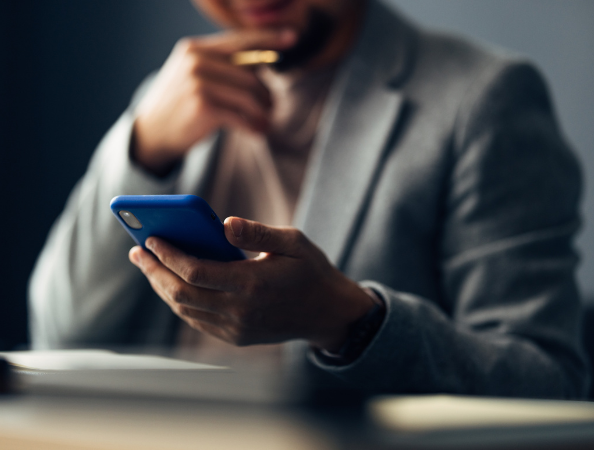Cell Phone Addiction: What Science Recommends for Reducing Use Without Disconnecting from the Digital World or Losing Productivity

Cell phone addiction is not just a popular perception, but a phenomenon that has captured the attention of the international scientific community. Recent studies have confirmed that excessive phone use can have negative consequences for mental health, productivity, and even interpersonal relationships.
But how can this dependence be effectively reduced? Science offers some clear, evidence-backed answers.
A prominent example is the randomized clinical trial published by McGill University researchers in the International Journal of Mental Health and Addiction, which evaluated interventions based on 'nudges'—subtle nudges in the right direction without the need for prohibitions or drastic restrictions.
According to Jay A. Olson and his team, small changes in the digital environment and phone use can lead to significant changes in behavior.

A study revealed that people unlock their phones an average of 144 times a day. Photo: iStock
Effective strategies included changing the home screen to a blank or grayscale one, turning off unnecessary notifications, and rearranging apps so that the most addictive ones are not easily accessible.
Likewise, an article published by Deutsche Welle (DW) explains that one of the most important initial steps is to identify and measure the time spent on your phone. Experts cited by this outlet recommend using tools such as Screen Time or Digital Wellbeing to record actual usage and make informed decisions.
They also suggest establishing "mobile-free zones," such as the bedroom or dining room, to regain control over attention and rest.
One of the keys most reiterated by science is a mindful approach. This involves being intentional when interacting with your phone. For example, instead of opening social media out of habit, do so with a specific purpose and for a limited amount of time.
Removing apps that generate infinite scrolling (such as TikTok or Instagram) or using their web versions has also been shown to reduce automatic and compulsive usage.
The Reviews.org website, which studied the technological habits of American users, reported in a survey that 56.9% of participants consider themselves addicted to their cell phones.
The study revealed that people unlock their phones an average of 144 times a day , often for no clear reason. To reduce this number, it's recommended to enable temporary app locks, use long passwords to log in to certain platforms, or enable digital timeout features.
Furthermore, both the specialists cited by DW and the McGill researchers agree that it's not about eliminating cell phone use altogether, but rather adopting a healthier and more regulated approach . The goal is to turn the phone into a useful tool rather than a constant source of distraction or anxiety.
In more severe cases, where symptoms similar to those of an addictive behavior disorder (such as anxiety when not using a cell phone, social withdrawal, or interference with work) occur, experts recommend seeking professional support. Cognitive-behavioral therapy has been shown to be effective in treating problematic digital behaviors.
In short, science has proven that it is possible to overcome cell phone addiction. Through behavioral interventions, technological adjustments, and conscious decisions, millions of people can transform their relationship with these devices.

Experts recommend having "mobile-free zones" like the bedroom where you sleep. Photo: iStock
ANGELA MARÍA PÁEZ RODRÍGUEZ - SCHOOL OF MULTIMEDIA JOURNALISM EL TIEMPO.
eltiempo





